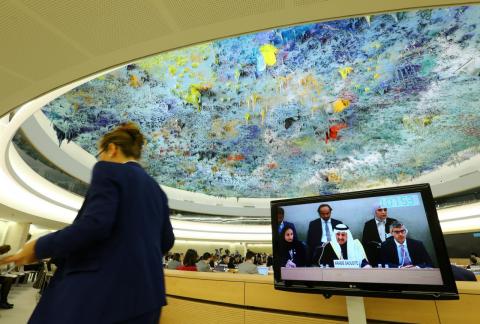Context of migration in Saudi Arabia The context of migration in Saudi Arabia is shaped by a complex mix of economic needs, labor dynamics, social policies, and geopolitical factors. Saudi Arabia is one of the largest destinations for migrant workers in the Middle East, with 39 percent of international migrants comprising the total population. Its[…]
All GCC states implement the kafala system, a visa sponsorship program that gives extensive powers to employers and leaves workers vulnerable to abuse. Domestic workers, primarily women from South and Southeast Asia, are especially vulnerable to exploitation due to their isolation and reliance on their employers. They face a higher risk of physical, sexual, and[…]
The recent forced labor complaint against the Saudi Arabian government by the Building and Wood Workers’ International Union (BWI) underscores significant concerns about the treatment of migrant workers under the country’s Vision 2030 plan. This action by the BWI, representing 12 million members, serves as a stark warning to Saudi authorities, businesses, and investors about[…]
Saudi Arabia’s human rights record continues to be deeply concerning. This report includes the four most alarming points at present in Saudi Arabia; including the killing of migrants, repression of dissidents and systemic discrimination against women. The following sectors covered by this report violate international Human Rights standards and demand urgent attention. Criminal Justice, Arbitrary[…]
Summary The United Arab Emirates is the country with the highest proportion of international migrants in the world. Labour migration in the kingdom is governed by a restrictive and abusive system, named kafala, that causes numerous and well-documented abuses. This briefing paper contextualizes the kafala system in the Gulf Cooperation Council (GCC) countries and the[…]









